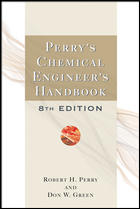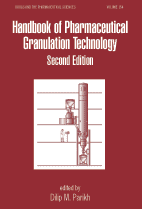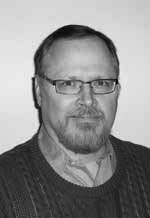Powder Flow I: Measuring Powder Flowability & Its
Applications - A Hands-On Design-Oriented Workshop
Nashville, TN
• December 8-9, 2014 •Registration form
An intense 2-day powder flow & handling workshop, for those involved in industrial chemical, pharmaceutical or solids processing issues in which powder flow properties are critical, including material transfer/handling, segregation, feeding and filling operations, encapsulation, roll pressing and tabletting. This course lays the groundwork for understanding the unique nature of powder flow properties, and its impact on processing and compaction, through team design problems and first hand powder flow lab measurements by shear cell, permeability cell, fluidization and segregation testing. The course is equally of interest to those involved in formulations, bulk drug production, or quality control, who wish to engineer or control powder flow properties to minimize handling problems or improve product quality.
Powder Flow II: Industrial Solids Handling & Mixing - Plant Design Principles & Operation
Nashville, TN
• December 10-12, 2014 •Registration form
By popular request, a new follow-on companion workshop treating industrial applications of the powder flow principles of Powder Flow I and solids mixing, which delves into commonly encountered design & operational issues of powder handling and blending systems. Topics include unassisted mass/funnel flow discharge; flow promoting devices such as inserts, aeration and vibration; handling difficult powders; feeders and feed control; mechanical and pneumatic conveying of powders; processing of segregating blends; solids blending & mixing, mixer selection and mixture quality. This course is useful for anyone optimizing current or designing future solids mixing and handling systems. It presumes a requisite knowledge of powder flow principles such as Powder Handling I, or equivalent experience.
An Introduction to Powder Processing
Nashville, TN
• December 8-9, 2014 •Registration form
A new, first powder technology workshop introducing participants to the unique attributes of powders, contrasted to more well understood liquids, and the impact of these complexities on solids processing. Topics include powder characterization (particle size, moisture sorption, surface area, surface chemistry, hardness, density); segregation & powder sampling; and an overview of key unit operations of mixing, grinding, agglomeration, classification, fluidization, and drying, as well as solids transport between unit operations. It is valuable to anyone new to powder processing or current practitioners who have not had the opportunity to learn underlying principles of handling and characterizing powders.
Design & Optimization of Granulation & Compaction Processes
Nashville, TN
• December 10-12, 2014 •Registration form
Course content will include principles of agglomeration; demonstrations of characterization techniques and key agglomeration rate process phenomena; design, scale-up & operation of various granulation processes and compaction techniques (fluid-beds, mixers, pans, tabletting, roll pressing, and extrusion). Interactions between formulation properties and process equipment are particularly emphasized in the course. Course features include scale-up sessions for mixer and fluid-bed granulation, and demonstrations of the impact of stress transmission & lubrication on tabletting and compaction.
Solids Mixing, Blending & Handling
Offered upon request at Powder Schools (Inquire directly.)
•Registration form
An in depth, two-day course focusing on the mixing, blending, and subsequent handling of powders and their blends. Course content includes fundamental differences of mixing free-flowing versus cohesive powders; the impact of powder flow characteristics on effective mixing; particle mobility; ordered versus random versus segregated mixes; main mixer types, common combinations, and mixer selection; using mixture variance to measure a mixer’s performance; proper system design to enhance a quality mix; impact of scale of scrutiny on mixture variance; effect of moisture and sprays on mixture variance; proper sampling techniques; fundamental approaches to mixer scale-up; segregation issues and fixes in transporting blends; and related topics in solids handling to maintain mixture quality or aid in reblending. Offered upon sufficient request.
Contacts:
Registration, lodging & course content questions should be directed to:
courses@powdernotes.com • Registration: 615.469.1342 • Fax: 240.524.8482
Additional details regarding conference center can be obtained at: www.evinsmill.com , Tel: 615.269.3740
Downloads:
Registration form: Registration form
Complete syllabus: E&G Powder School Syllabus
top
|
|








